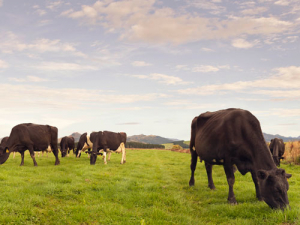Statistics released today offer some insight into how COVID-19 is affecting New Zealand’s primary exports.
The value of total goods exports rose by $212 million (4.5%) from February 2019 to reach $4.9 billion in February 2020, Stats NZ said today.
Stats NZ says the increase in total goods exports was due to an increase in the value of dairy products.
“This month’s total goods exports were up on the same month of 2019, led by dairy exports, in particular milk powder,” says Stats NZ international statistics manager, Darren Allan.
“Dairy product exports to China remained high, but logs, meat, and fish exports were lower.”
The rise in total goods exports was led by milk powder, up $191 million (28%) from February 2019. This was price-led as quantities were little changed.
Partly offsetting the rise were falls in forestry products (down $124 million or 27%, mainly reflecting a fall in untreated logs), and fish (down $47 million or 27%).
The total value of meat exports was changed little, but higher quantities were exported to the United States instead of China.
Overall, meat export values fell slightly in February 2020 (down 1.4%), with a fall in sheep meat partly offset by a rise in beef.
Average prices per tonne were up for both beef and lamb, despite lower total export volumes for both commodities.
In February 2020, New Zealand exported less beef to China than in the same month last year, but more was shipped to the US.
“The value of monthly beef exports to the US was higher than to China for the first time since early 2019,” Allan said.
“Higher quantities of New Zealand beef exports were sent to the US, rather than China, following the COVID-19 outbreak in China.”
Exports to China fall
In contrast to rises in exports to all New Zealand’s other main markets, exports to China fell $120 million in February 2020.
The leading contributors to the fall in exports to China were:
• untreated logs (down $80 million)
• sheep meat (down $73 million)
• beef (down $65 million)
• fish (down $40 million).
These falls were offset by a rise in milk powder, up $90 million on February 2019. This was led by a 30% increase in average unit values. The quantity exported also rose, up 13%.











